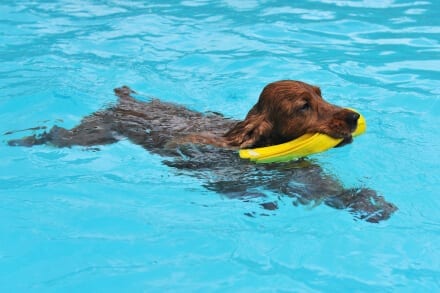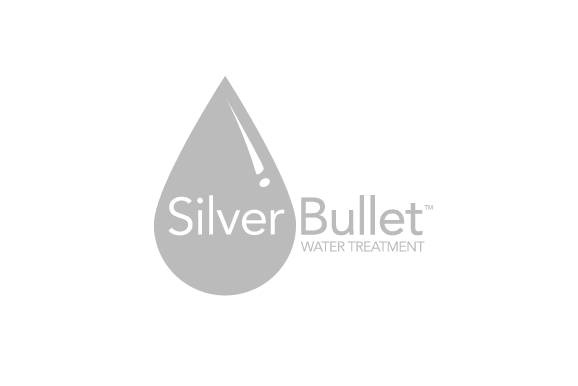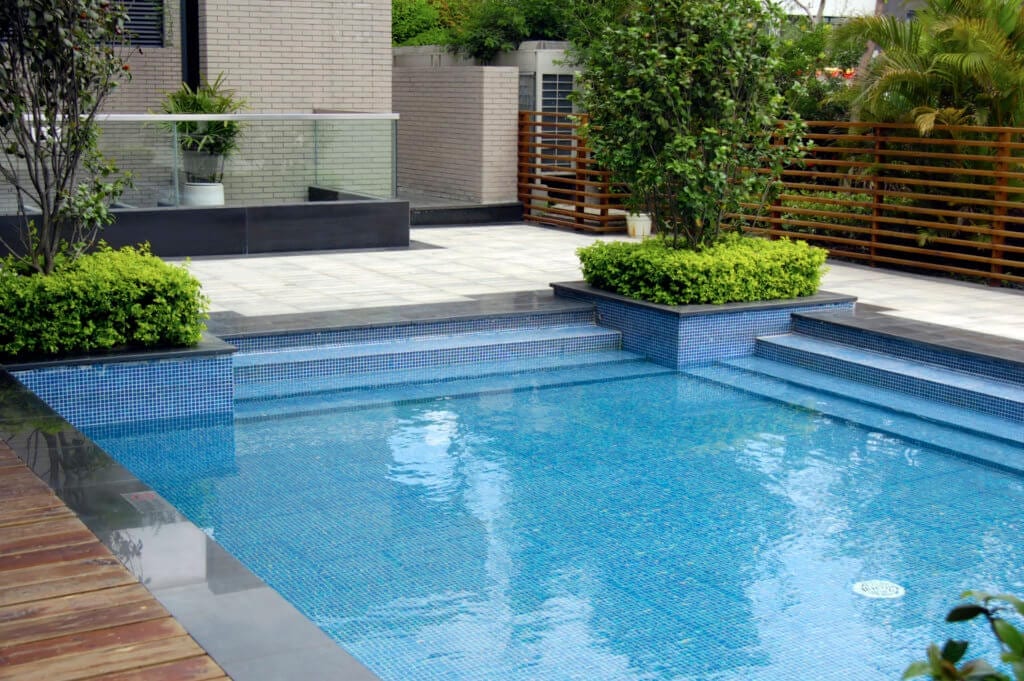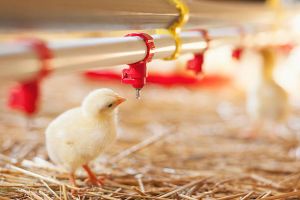
The larger the filter you have, the better job it will do and the less frequently you will need to clean it. Note that this “bigger is better” recommendation is just for the filter tank (not the pump!).
There are three different types of filters on the market: cartridge, diatomaceous earth (DE) and sand filters. Below I explain each type of filter and the pros and cons of each:
Cartridge Pool Filters
A cartridge filter is a large tank with the cartridge filter inside that traps particles as small as 10 microns (1 micron = 0.000039 inch). Cartridge filters do not require backwashing and are simple to remove. To clean it, you can remove the cartridge and spray it down with a hose (or you can use chemical sprays and soaks to clean the cartridge filter before spraying it down). Cartridge filters require replacement every few years, depending on use and brand.
Cost:
- Inground Pool Cartridge Filter: Average price is $850 (not including installation)
- Above Ground Pool Cartridge Filter: Average price is $450 (easy to install yourself)
- Replacement Filters: $40-$90 off the shelf or more for very large filters
Pros:
- No backwashing
- Performs well at low speeds (perfect for energy-efficient variable-speed pumps) due to large surface area
- Filters particles as small as 10 microns
- Helps to conserve water due to no backwashing and ability to handle variable speed pumps
Cons:
- Must replace worn cartridge filters about every three years
- Must deep-clean the cartridges one or two times per year
Diatomaceous Earth (DE) Pool Filters
A DE filter is a large tank with grids or finger-like projections inside that are coated with DE powder. DE is a naturally occurring, soft sedimentary rock that easily crumbles into a fine powder. This rock is essentially the fossilized remains of hard-shelled algae (they act like tiny sponges). DE filters perform much like a sand filter, only they can filter out even smaller particles (as small as 3-5 microns in size).
DE filters require backwashing because as the tank fills up with trapped particles, the pressure in the tank rises. Backwashing is recommended monthly, and after backwashing you must add fresh DE powder. The grid or finger-like projections in the tank must be deep cleaned once or twice per year.
Cost:
- Inground Pool DE Filter: Average price is $850 (not including installation)
- Above Ground Pool DE Filter: Very difficult to find! So best to choose sand or cartridge filters if you have an above-ground pool.
- DE grid: $10-$20 per grid
- DE powder: $20 for 20 pound bag (need one pound of DE powder for 10 square feet of filter area)
Pros:
- Most precise filter (5 microns)
- Easy to add more fresh DE powder
Cons:
- Most expensive filter with higher maintenance costs
- DE powder is carcinogenic
- Some cities restrict backwashing DE filters due to the carcinogen properties of DE powder
- Grids must be deep-cleaned once or twice per year
- Monthly backwashing and increased water waste
- Not compatible with all types of sanitation mainly hydrogen peroxide/biguanide pools
Sand Pool Filters
A sand filter is a large tank filled with sand. Water is pumped through the sand, filtering out debris and particles as small as 20 microns. After a while, particles trapped by the sand begin to build up inside the tank and the pressure gauge indicates high pressure (eight to ten pounds), which means it is time to backwash the sand filter. Backwashing flushes out the filter by pushing water through the tank backwards. The sand lasts about seven years and the only required maintenance is backwashing and rinsing. It is important to match the sand filter with a pool pump of the same design flow rate.
Cost
- Inground Pool: Average price of sand filter is $650 (not including installation)
- Above Ground Pool: Average price is $250 (you can easily install yourself)
Pros:
- Inexpensive
- Easy maintenance
- Good for large pools
- It is possible to use better sands to improve filtering performance
Cons:
- Requires backwashing and rinsing which wastes water
- Less energy efficient due to high pressure needed to push water through the sand
- Filters down to 20-30 microns (compared to the 5 or 10 from the other two types of filters)






